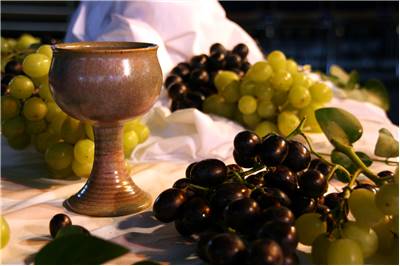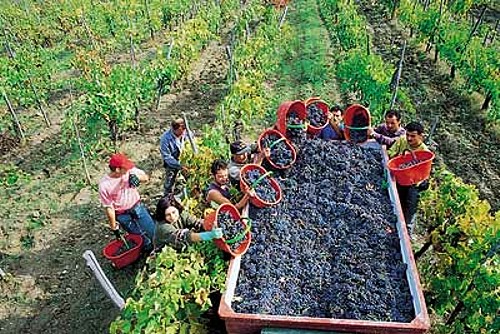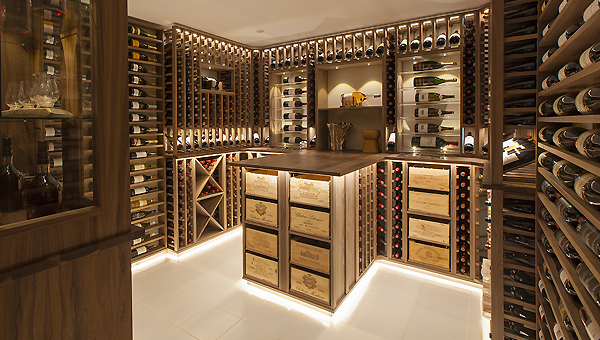Wine has an interesting and ancient history. As far back as recordkeeping allows, historical records along with surviving wall art in the form of carved reliefs suggests that fine wine made from grapes was produced for Kings, Queens and Emperors.
Wine in Lebanon in late 700 BC along with the Phoenicians in the Mediterranean developed vines to grow the grapes to successfully produce wine. Much later, Armenians produced wine in 4,100 BC and a variety of fruits including grapes were fermented in China to produce wine. The Greeks, Italians on the island of Sicily, and the Iranians were all not far behind. Most likely, wine was produced earlier than surviving records indicate too.
Wine and Religion
The altered state after consuming wine was believed to be related to religion. Wine and its use within different religions gave it special meaning and purpose beyond being merely a drink with a late supper, to learn more about catholic religion, check this post about when is the second coming?. The Greeks and the Ancient Romans both worshipped using wine as a part of their rituals.
 The Last Supper of Jesus also included wine consumption. Ritual wine has been included in various practices of the Jewish religion since the bible was first introduced. Wine production increased over the centuries partly because it stayed popular with powerful religious leaders who led communities in prayer. Only much later did wine tasting and casual enjoyment of a bottle of wine become a semi-regular thing for the common folk.
The Last Supper of Jesus also included wine consumption. Ritual wine has been included in various practices of the Jewish religion since the bible was first introduced. Wine production increased over the centuries partly because it stayed popular with powerful religious leaders who led communities in prayer. Only much later did wine tasting and casual enjoyment of a bottle of wine become a semi-regular thing for the common folk.
Wine Production
With a growing thirst for consumption beyond high society and those in power, wine production grew steadily until it accelerated considerably in the 15th century and beyond. Better growing, harvesting, fermentation, and manufacturing techniques over the years progressively made producing a single bottle of wine more affordable and less time-consuming, which helped the small industry keep up with the growing demand.
 Wine has since become popular in all corners of the world. There are some cultures where it’s considered perfectly normal to enjoy a bottle of wine with a late meal. Equally, there are others where the consumption of alcoholic beverages is either frowned upon or outlawed. Nevertheless, buying fine wine is an extravagance that is included in many financial budgets because it’s both enjoyable and seen as socially acceptable.
Wine has since become popular in all corners of the world. There are some cultures where it’s considered perfectly normal to enjoy a bottle of wine with a late meal. Equally, there are others where the consumption of alcoholic beverages is either frowned upon or outlawed. Nevertheless, buying fine wine is an extravagance that is included in many financial budgets because it’s both enjoyable and seen as socially acceptable.
Storage and Protection
Wine is surprisingly perishable. Over the centuries, different techniques have been tried to store it successfully with varying degrees of success. An unopened bottle of wine can last for up to 40 years when stored properly, to learn how to do it just see this post explaining the best way to store wine. Its tannins help to preserve it but also make it bitter in its early life. Once they have dissipated, a bottle gives off a more enjoyable aroma once uncorked. Wine does taste better after it has had time to age, but only under the right conditions.
Maintaining a constant cool temperature is essential for wine. Without it, its delicate composition will start to oxidise. Oxygen seeps in causing the wine to alter in composition. When damaged in this way, stored wine becomes undrinkable much sooner. Protecting wine to keep it safe for future consumption is something that Octavian Vaults are focused on day and night. Their cool wine cellars situated around 100 feet underground in the Wiltshire Hills ensure the right conditions for wine aficionados and investors.
Wine’s rich history is a good indicator of its enduring appeal for wine lovers. While production methods have changed over the centuries, its careful cultivation means a wider selection of different labels to choose from and never-ending pleasure for the taste buds.
